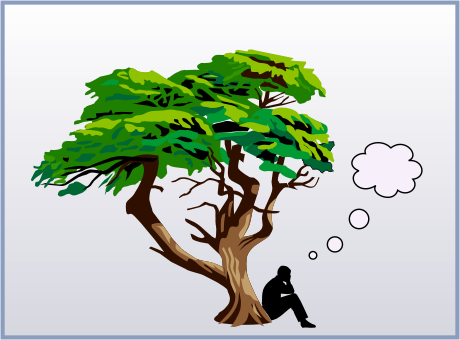Why is it that in many churches that are growing numerically and seeking to expand their influence, evidence of a radical and lasting transformation in the hearts of people is seldom the norm?
I thought much about this, wondering why a great and constant movement of the Spirit (as seen in the early church) has dwindled in many churches. Is it because life has become more complex and the pace of life more pressured? Perhaps to some extent. Yet the real reason may be that it is the Spirit who brings life (relationship with God) and the Spirit can only work effectively where God’s Word is read, taught, and obeyed.
In the book of Ezra, God’s people who had gone spiritually astray, repented and worshiped when the Scriptures—which had been lost during their exile—were discovered in the temple and read aloud (2 Kings 22:10, Nehemiah 8).
In Acts, the church was born and the Holy Spirit was poured out on believers, as prophesied by Joel. This happened as Peter preached the truth of God’s Word (Acts 2:14-47)
After many centuries—during which the church was in the wilderness of apostasy—the Bible was translated from Latin into the languages of common people. God used Johan Gutenberg, who invented the printing press, to print the first Bible (1455). As Bibles became available to households, it set the foundation for the reformation (rebirth of the church), which subsequently moved from country to country. The Holy Spirit convicted men and women who flocked to hear the Word of God being preached with power.
The Word of God is likened to seed falling on the heart of man (Luke 8:11), and the Holy Spirit is the life-giving water (Isaiah 44:3, John 4:14). When we talk about the outpouring of the Holy Spirit, the thought of life-giving rain gently falling on the parched earth comes to mind. Rain sustains life, but it matters greatly what (if anything) has been planted. If there is nothing, the water drains away without any lasting benefit. If the field is strewn with weeds, the weeds flourish. But if the soil has been cultivated and seed has been sown, rain ensures a good harvest. God’s Word, together with the Holy Spirit’s work, accomplishes what God intended—for people to know Him, grow in their faith, and produce a harvest of righteousness (Hosea 10:12).
Sadly, what we see happening today is that the striving for human rights has, in certain areas, surpassed its primary intention and is forcing its own secular belief system on the rights and freedom of individuals. This tendency is threatening to erode the church’s foundation of Truth—the key doctrines of scripture. Some churches, in trying to adapt to the culture of equal rights, have allowed popular opinion to dictate what is acceptable and right.
Other churches don't seem to recognise the power of God's Word and they neglect the systematic (balanced) teaching thereof. God says, “My people are being destroyed because they don't know Me...” Hosea 4:6. The teaching in those churches and Sunday schools often focuses on us—our feelings, our problems, and our interpersonal relationships. Yet the focus should rather be on the holy God we serve. Our love for Him should be our primary reason and motivation for what we do and how we live. Although there is nothing wrong with addressing relevant topics, a lack of sound doctrine will, over time, result in a sparse crop and leave fallow ground where weeds are free to take over.
The Spirit's blessing on those who have compromised their faith, or who do not live by faith, is like drenching rain that causes both wheat and weeds to thrive, and so there is no lasting growth (Luke 8:14). Could this be the reason why the Lord, in His wisdom, holds back the Spirit's deep-soaking blessing on certain churches and ministries?
What should concerned believers be doing?
Firstly, we should be spending time with God—reading His word, praying, and thinking about what He is saying in our hearts.
Secondly, we should be passing on the truths of God’s Word to the next generation—not only the moral principles that are acceptable to the world—but God’s life-changing Truth that brings joy to the heart. For it is love for God that makes our hearts rejoice in the Truth and causes us to cling to it (1 Corinthians 13:6). Anything less brings a restless dissatisfaction to our souls.
Hebrews 6:7-8 sums it up with these words: “Land that drinks in the rain often falling on it and that produces a crop useful to those for whom it is farmed receives the blessing of God. But land that produces thorns and thistles is worthless and is in danger of being cursed. In the end it will be burned.”


